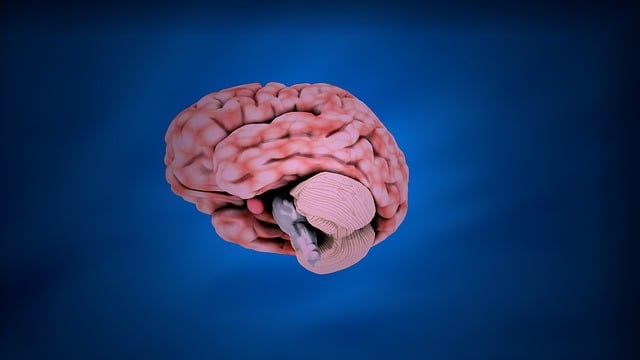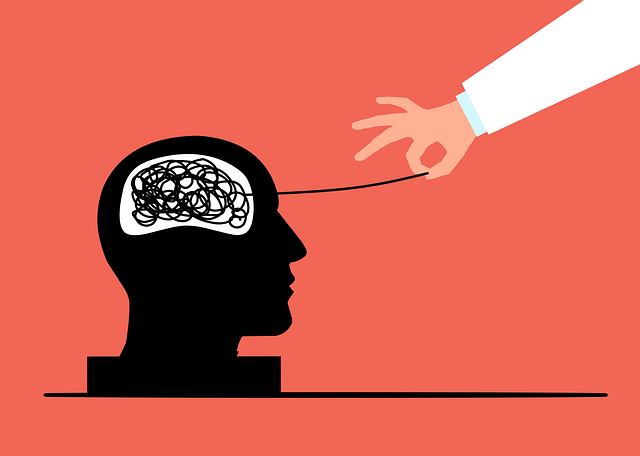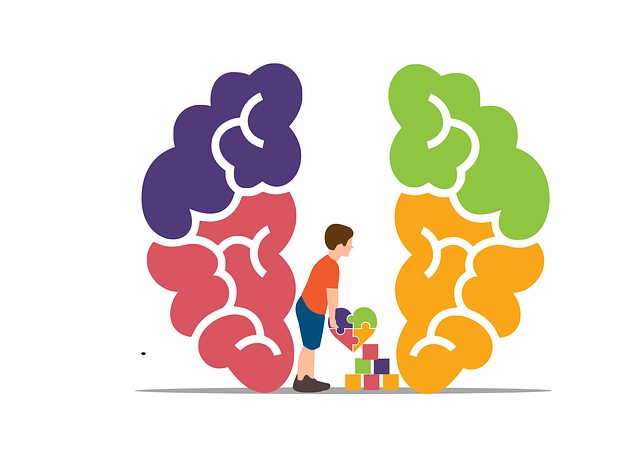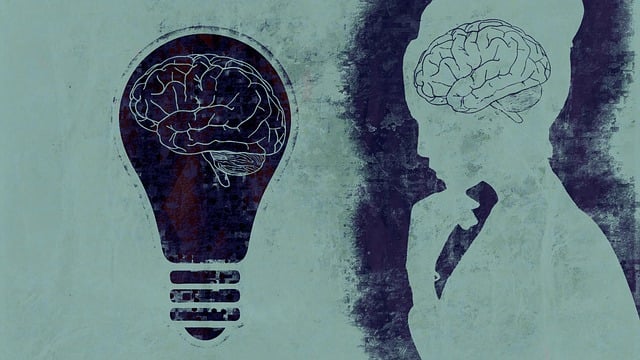The mental health of the elderly, especially focusing on postpartum depression (PPD) in grandmothers, is a critical yet often ignored healthcare aspect. While PPD commonly affects young mothers, up to 10% of older women experience it, leading to isolation and cognitive decline risks due to societal expectations and limited accessible therapy. Effective management requires shifting perspectives towards mind-over-matter principles, reducing stigma, and implementing tailored strategies like social support groups, CBT, and mindfulness practices. Specialized assessment tools are needed for elder therapy, including emotional intelligence and non-verbal cue observations. Researchers use both qualitative (interviews, focus groups) and quantitative (surveys, tracking) methods to evaluate mental wellness programs. Success is measured using traditional surveys and emerging practices focusing on resilience, relationships, and work-life balance. Case studies, showcasing real-world program impacts, aid in understanding demographic-specific therapy needs, fostering continuous improvement and tailored programs for elders suffering from postpartum depression.
Mental wellness programs for seniors are essential, with effective evaluation methods ensuring their success. This article explores comprehensive assessment strategies, focusing on postpartum depression in elderly patients—a critical yet often overlooked aspect of mental health. We delve into assessment tools tailored to elderly clients and contrast qualitative with quantitative evaluation methods. Additionally, we uncover common metrics and real-world case studies, providing insights into measuring program effectiveness, specifically in the context of therapy for elders suffering from postpartum depression.
- Understanding Elderly Mental Health: Uncovering Postpartum Depression
- Assessment Tools for Therapy Effectiveness in Elderly Patients
- Qualitative vs. Quantitative Evaluation Methods
- Measuring Success: Common Metrics and Tools for Wellness Programs
- Case Studies: Real-World Application of Evaluation Techniques
Understanding Elderly Mental Health: Uncovering Postpartum Depression

The mental wellness of elderly individuals is a critical aspect often overlooked within the broader spectrum of healthcare. Among the various challenges they face, postpartum depression (PPD) in older women deserves special attention. While PPD is commonly associated with young mothers, it can also manifest later in life, affecting up to 10% of grandmothers. This hidden mental health issue can be exacerbated by societal expectations and the lack of accessible therapy for elders, leading to feelings of isolation and increased risk of cognitive decline.
Understanding and addressing PPD in the elderly requires a shift in perspective towards mind over matter principles. Mental illness stigma reduction efforts must target not only younger generations but also older adults. Mood management strategies tailored specifically for this demographic can include social support groups, cognitive-behavioral therapy (CBT), and mindfulness practices. By integrating these approaches, healthcare professionals can improve the detection and treatment of PPD, thereby enhancing the overall mental wellness of elderly individuals and fostering a more inclusive and supportive society.
Assessment Tools for Therapy Effectiveness in Elderly Patients

Evaluating the effectiveness of therapy for elders suffering from postpartum depression is a nuanced process that requires specialized assessment tools. Mental wellness programs designed for this demographic must go beyond traditional metrics to account for age-related differences in cognitive function, physical health, and social dynamics.
One such tool gaining traction is the use of emotional intelligence assessments tailored for older adults. Measuring emotional intelligence helps understand how individuals regulate their emotions, perceive and interpret those of others, and make decisions based on these insights—crucial components in fostering effective communication strategies within therapeutic settings. Additionally, observational methods that capture non-verbal cues and patterns of interaction can provide deeper insights into the therapeutic process, particularly when combined with self-report measures of mental wellness.
Qualitative vs. Quantitative Evaluation Methods

When evaluating mental wellness programs, particularly those designed for vulnerable populations like elders or new mothers experiencing postpartum depression, researchers often employ two primary approaches: qualitative and quantitative methods. Qualitative evaluation delves into the nuances of participants’ experiences, perspectives, and feelings through open-ended interviews, focus groups, and case studies. This approach is invaluable for understanding the emotional journey of individuals dealing with mental health challenges and identifying factors that impact their recovery process. For instance, exploring a senior’s perception of therapy can reveal the importance of social connections in their healing.
On the other hand, quantitative methods involve analyzing numerical data collected through surveys, questionnaires, or statistical tracking. This data-driven approach quantifies outcomes, allowing researchers to measure program effectiveness and track changes over time. For example, assessing the reduction in depressive symptoms post-postpartum depression therapy using standardized scales provides concrete evidence of its success. Integrating techniques like Mindfulness Meditation within these programs can be evaluated quantitatively through participant feedback and qualitative interviews that explore improvements in Self-Care Routine Development for Better Mental Health.
Measuring Success: Common Metrics and Tools for Wellness Programs

Measuring success is a critical aspect of evaluating any mental wellness program, especially when addressing sensitive issues like postpartum depression or providing therapy for elders. Common metrics include self-reported surveys and clinical assessments that gauge changes in symptoms, functioning, and overall well-being. Tools such as standardized questionnaires (e.g., PHQ-9 for depression) offer quantifiable data on the severity and impact of mental health concerns.
In addition to these traditional methods, emerging practices like burnout prevention, conflict resolution techniques, and compassion cultivation practices can be incorporated into evaluation frameworks. By assessing improvements in emotional resilience, interpersonal relationships, and work-life balance, programs can demonstrate their holistic benefit beyond clinical symptoms. This broader perspective ensures that wellness initiatives effectively address the unique challenges faced by participants, fostering sustainable mental health improvement.
Case Studies: Real-World Application of Evaluation Techniques

Case studies offer a powerful tool for evaluating mental wellness programs, especially when examining specific populations like elders and new mothers suffering from postpartum depression. These real-world applications provide tangible insights into the effectiveness of various interventions. For instance, researchers can study an elderly patient’s response to cognitive behavioral therapy (CBT) tailored for age-related issues, tracking improvements in their mood, anxiety levels, and overall quality of life. Similarly, postpartum depression support groups or one-on-one counseling sessions can be evaluated through case studies, highlighting the impact on maternal mental health awareness and empathy-building strategies.
By delving into these individual journeys, professionals gain a deeper understanding of what works best for different demographics. This approach allows for continuous improvement in therapy methods, ensuring that programs are tailored to the unique needs of elders and new mothers. Moreover, case studies contribute to growing mental health awareness by showcasing successful recovery stories and effective treatment modalities, fostering a more supportive environment for those seeking therapy.
Evaluating mental wellness programs, particularly those catering to elderly individuals with postpartum depression, requires a balanced approach. By combining qualitative and quantitative methods, we can gain comprehensive insights into the effectiveness of therapy. Assessing common metrics and leveraging real-world case studies ensures that programs are tailored to meet the unique needs of this demographic. Additionally, understanding the interplay between assessment tools and treatment outcomes allows for continuous improvement, ultimately enhancing the overall mental health and well-being of elderly patients, especially those experiencing postpartum depression. This multi-faceted evaluation is crucial in advancing therapy for elders and fostering positive mental health outcomes.












